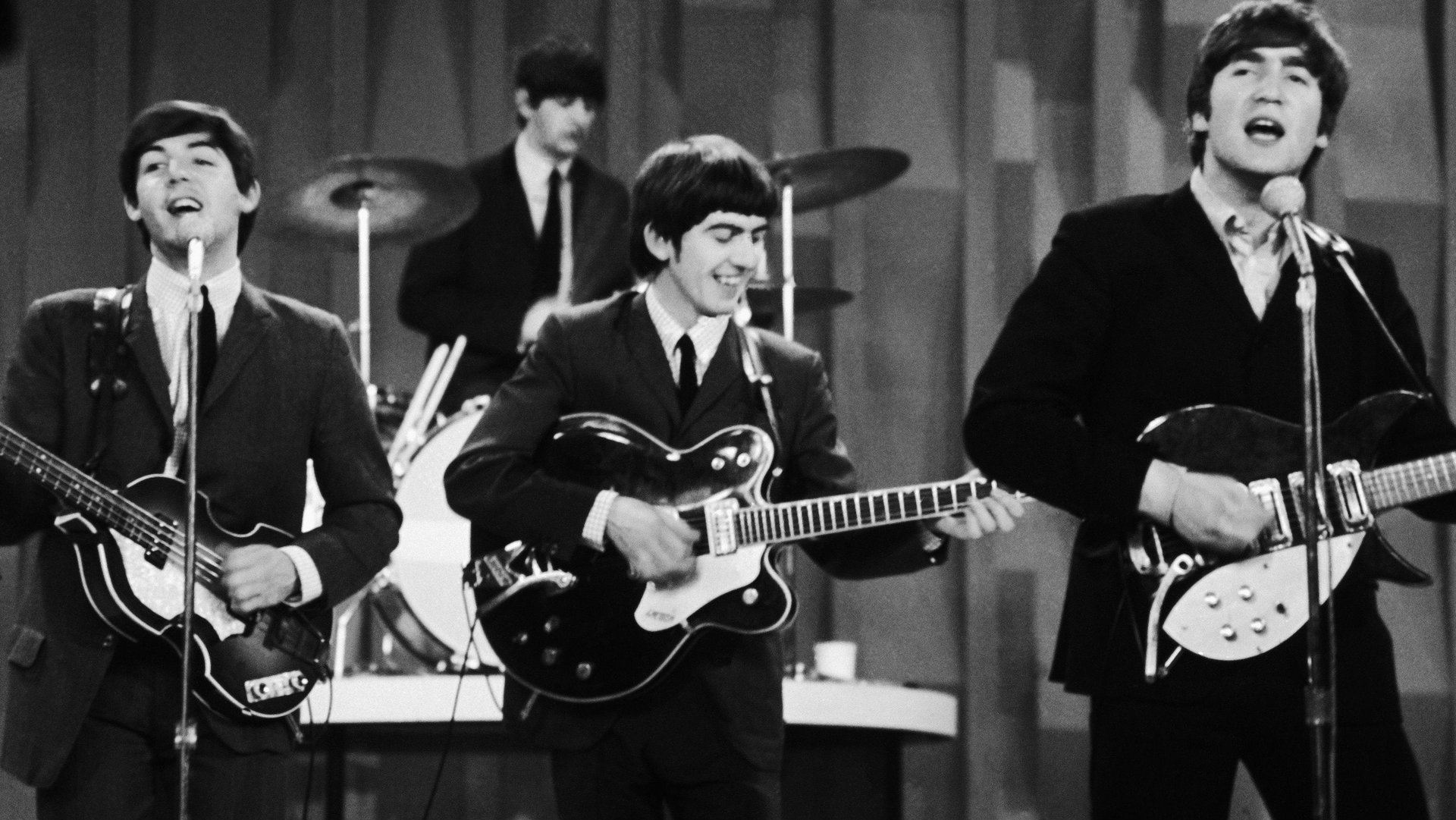You might hate taxes. But they sure do inspire some great art
US taxpayers have until April 18 to file their tax returns, a day to which few look forward with enthusiasm. Failure to meet this deadline and fill in your overly complicated form could result in a hefty fine. You may wonder what the point is.


US taxpayers have until April 18 to file their tax returns, a day to which few look forward with enthusiasm. Failure to meet this deadline and fill in your overly complicated form could result in a hefty fine. You may wonder what the point is.
But the misery of taxes has inspired a number of great cultural works over the years. Here are a few. They may help you get through this weekend.
Music
If you drive a car, I’ll tax the street. If you try to sit, I’ll tax your seat.
The Beatles’s “Taxman” is the mother of all tax protest songs. It appeared on the 1966 album Revolver and was released as Harold Wilson’s government imposed ever higher rates of tax, culminating in taking 83% of the income of high-earners.
Also from Britain, which has a history of rock-musician tax exiles, The Kinks croon that “the taxman’s taken all my dough,” in 1966’s “Sunny Afternoon.”
Taxes also feature in tunes like The Who’s 1975 song “Success Story”, Cheap Trick’s “Taxman, Mr. Thief,” and Johnny Cash’s “After Taxes.”
Literature
David Foster Wallace’s 2011 novel The Pale King was his last. The unfinished novel is a story about a Midwestern tax-return center. Here’s an extract:
We’re the government, its worst face — the rapacious creditor, the stern parent … They hate the government — we’re the most convenient incarnation of what they hate. There’s something very curious though, about the hatred. The government is the people, leaving aside various complications, but we slit it off and pretend it’s not us; we pretend it’s some threatening Other bent on taking our freedoms, taking our money and redistributing it … with the curious thing being that we hate it for appearing to usurp the very civic functions we’ve ceded to it.
The novel included odd details, such as that the IRS once produced studies on how to collect taxes in case of nuclear war (apparently true) and even a fake motto: Alicui tamen faciendum est. Which means: “He is the one doing a difficult, unpopular job.”
It has been described as ”breathtakingly brilliant and stupefying dull” by the New York Times (paywall) and was nominated for a Pulitzer Prize (paywall).
Film
Tax, or tax avoidance, has also been the subject of a number of iconic films. More recently, it’s the exploits of Jordan Belfort—played brilliantly by Leonardo DiCaprio—in The Wolf of Wall Street that’s left a lasting impression. He tries to stash his money in Switzerland to avoid US taxes.
But the story doesn’t end there; it’s the shady financing of the film that’s now making the headlines.
The money for the biopic may have actually been unlawfully diverted from a Malaysian state fund (paywall), which was actually meant to be used for local economic development. There’s will now reportedly be a documentary about this. The Jordan Belfort story is clearly the gift that keeps on giving.
TV
The so-called Panama Papers, an unprecedented leak that exposed the world’s elite’s dodgy tax affairs, have dominated headlines in the last few weeks. Some have already pointed out the humorous parallels between the Panama Papers and a Simpsons episode that aired 20 years ago.
The episode, titled “Bart the Fink,” exposes Krusty the clown’s tax fraud. It even features the Cayman Islands, one of many notorious tax havens.
Tax season has featured in The Simpsons a fair bit:
And in the classic Nineties sitcom Seinfeld, too, such as when Jerry compares the IRS to the mafia after a $50 charitable donation to Krakatoa goes wrong. “They can take anything they want,” he wails. In another episode, Kramer is convincing Jerry to write off a broken stereo:
Jerry: “Write it off what?”
Kramer: “Jerry, all these big companies, they write-off everything.”
Jerry: “You don’t even know what a write-off is.”
Kramer: “Do you?”
Jerry: “No. I don’t.”
Kramer: “But they do, and they are the ones writing it off.”
Theater
Blockbuster musical The Producers, which was adapted to a film in 2005, chronicles the hilarious story of a convoluted tax dodge in which two producers plot to oversell interests in a purposefully terrible Broadway play. The musical-within-a-musical features the worst director, actor, and worst play ever written—and turns out to be a surprise hit.
While the antics of the characters of The Producers is somewhat far-fetched, it’s not entirely out of the realm of possibility. In 2013, five people were jailed for a total of more than 20 years for their role in an “entirely bogus film project.”